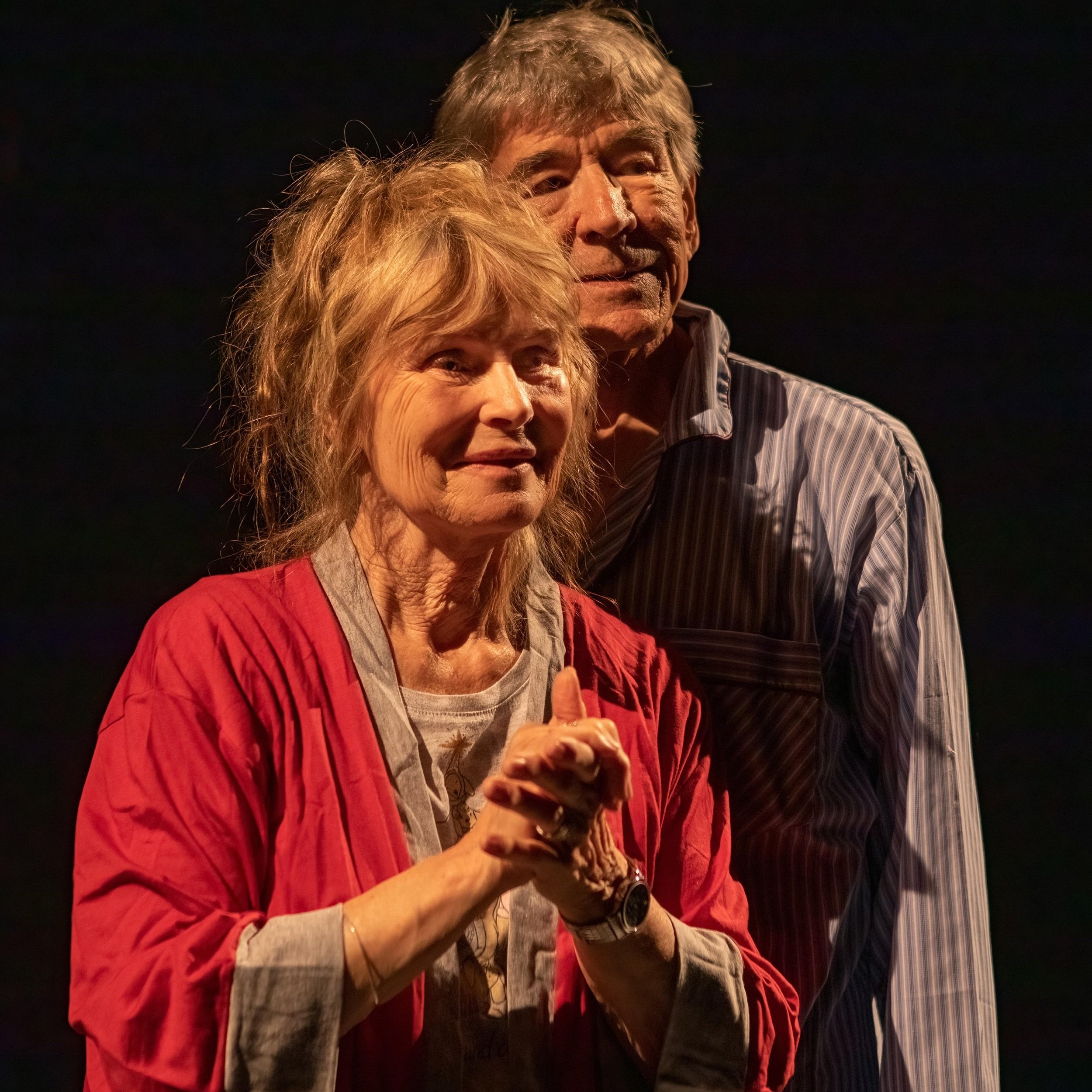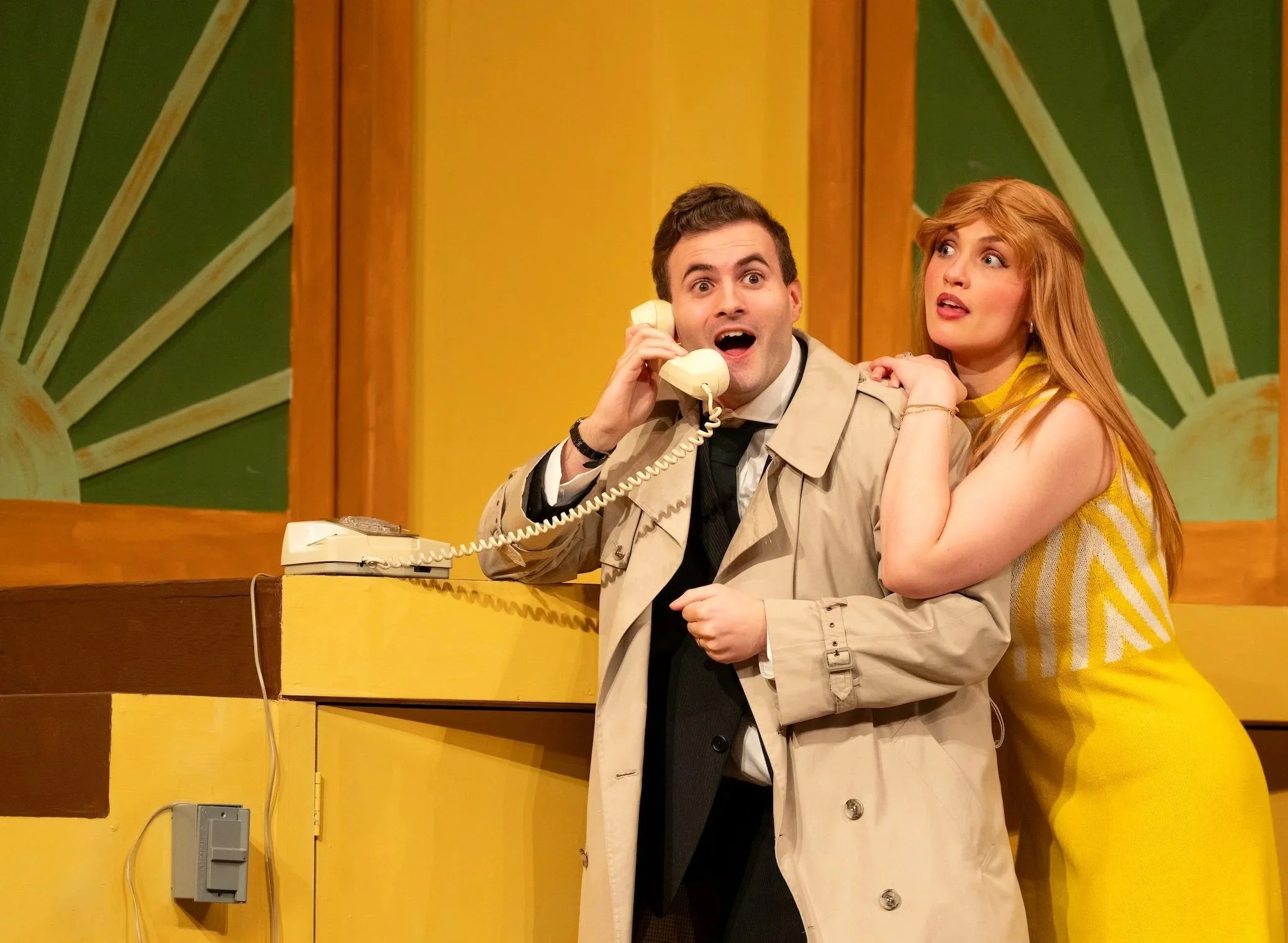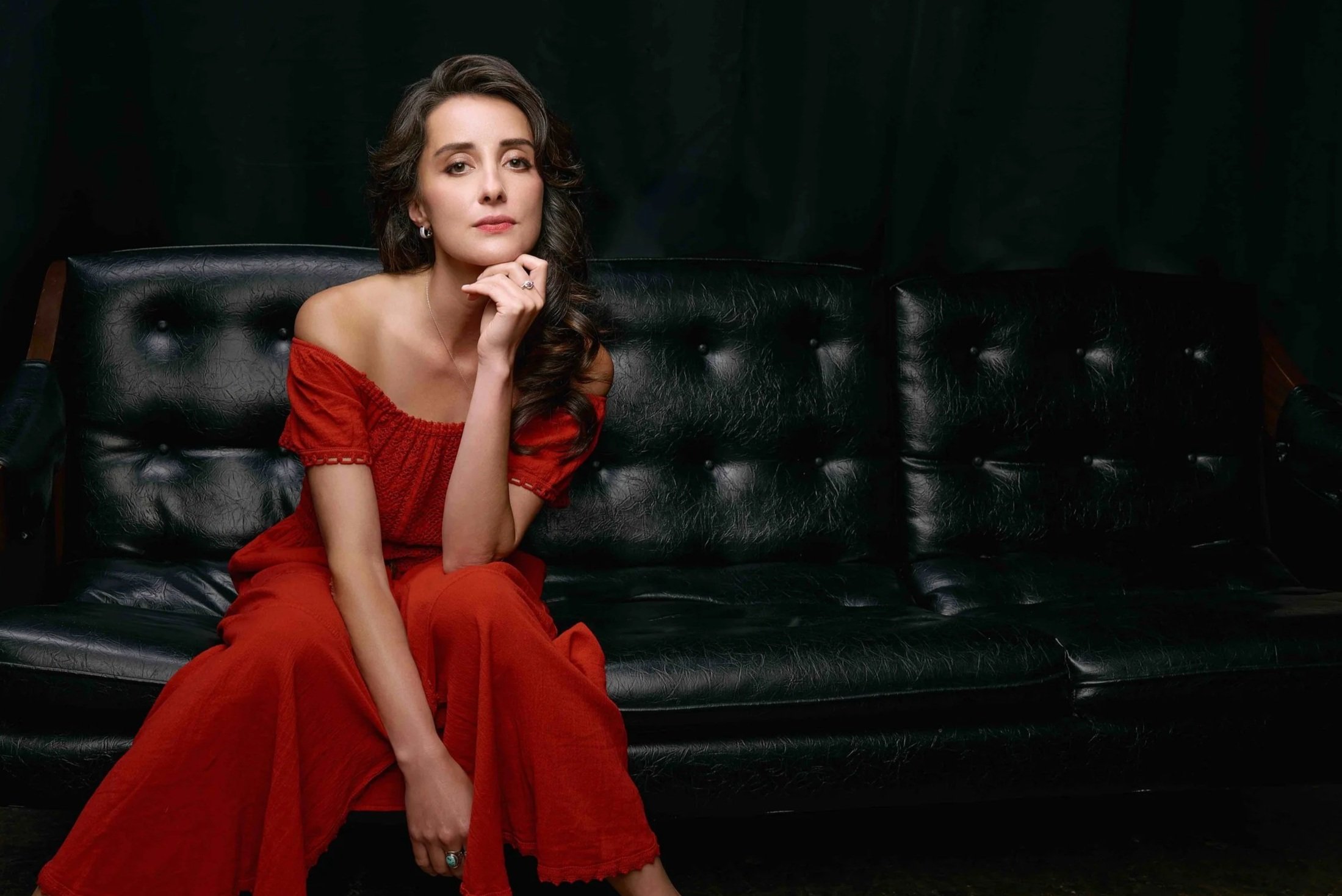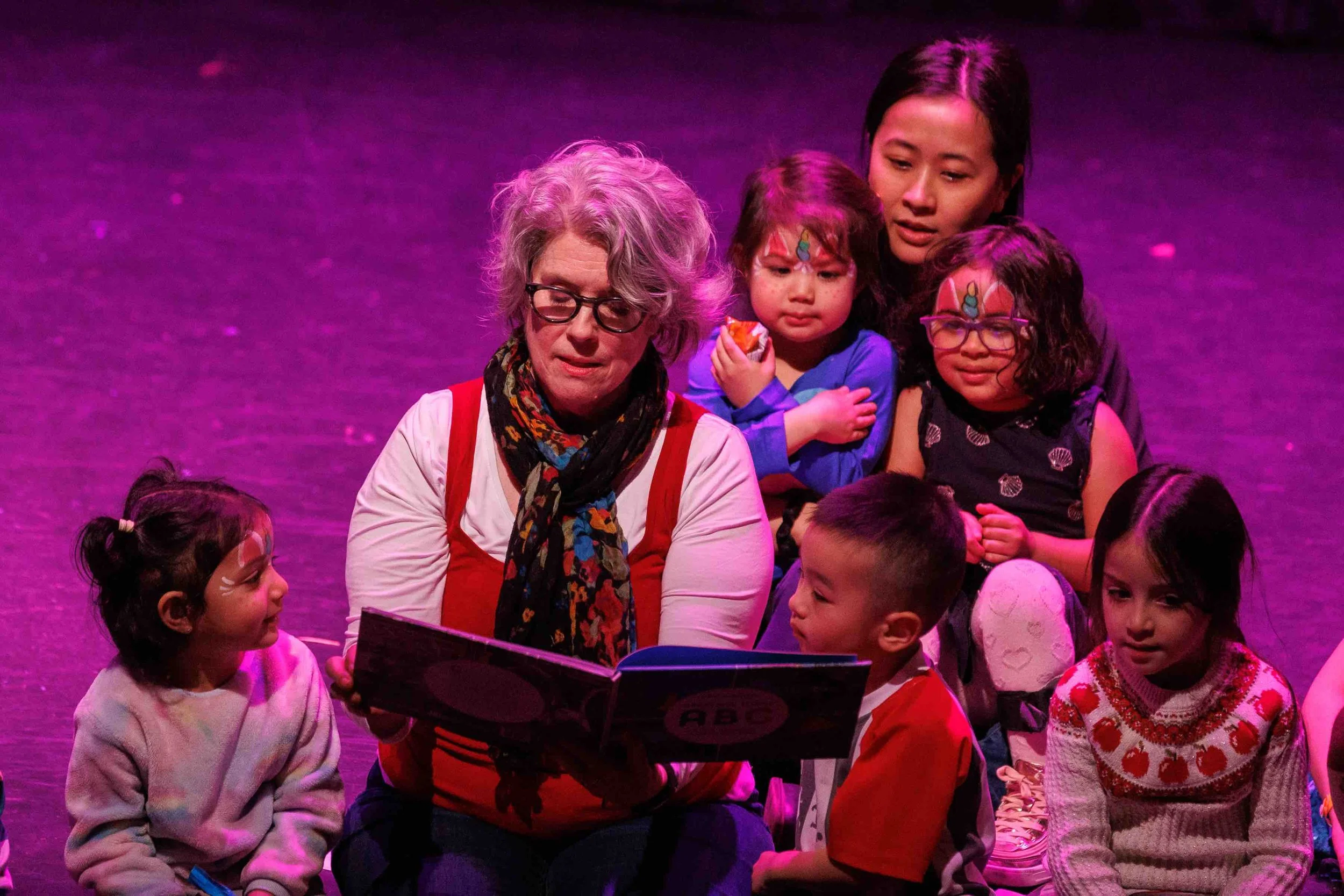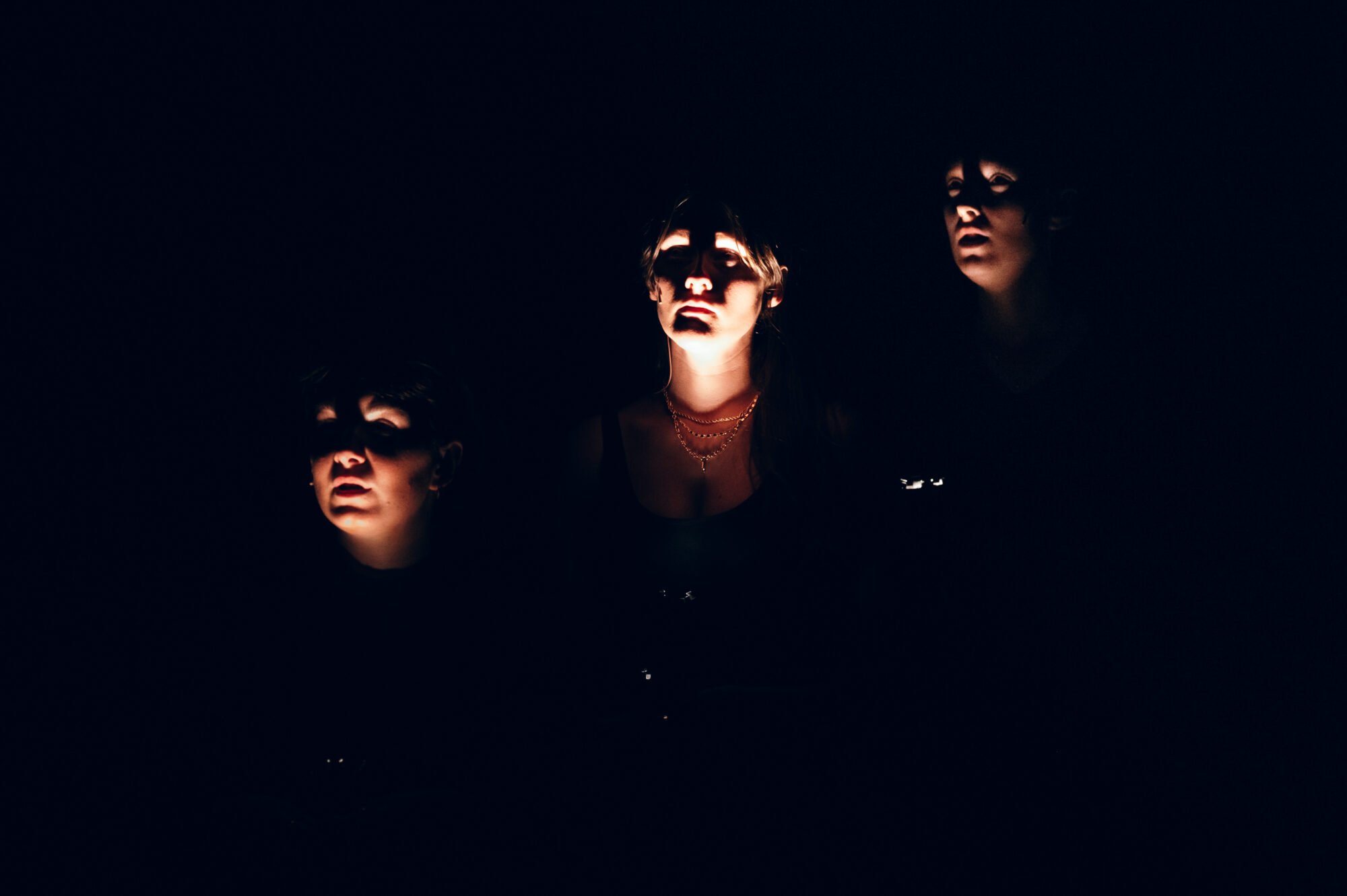Theatre review: The Window Outside tackles difficult questions around aging with compassion
Moving performances bring to life the struggles of one family struggling with the parents’ dementia and post-stroke disability
Susan Hogan and Douglas Abel in The Window Outside. Photo by Ross Durant photography
The Window Outside is at Presentation House Theatre to June 25
THE WINDOW OUTSIDE begins by painting an idyllic scene of an elderly couple in quotidian bliss. Wife Evelyn and husband Frank slow-dance and reminisce about their first meeting, they admire their garden and recall beloved pets laid to rest within. Their heartfelt words quickly reveal a lifetime of shared experiences and raising two daughters. It seems that their life radiates simplicity.
But as the rest of the household enters the picture, the blissful bubble is abruptly shattered, exposing the challenging current reality the family faces. Evelyn battles dementia while Frank struggles with the aftermath of a stroke that has left him impaired in mobility and speech. Sharon, their eldest daughter, cares for both of them. Miranda, the youngest, is taking time from her busy life in New York in response to her sister's urgent request. The visit becomes the catalyst for the family to confront difficult decisions about the future.
Australian playwright Belinda Lopez’s script touches on some difficult questions around end-of-life care, retaining a soft-hearted approach that’s grounded by its central characters' profound love.
Director William B. Davis choreographs moving performances in the emotionally expansive universe of the family's intimate home.
Susan Hogan’s Evelyn is wholehearted and headstrong. Nobody can convince her that her husband cannot speak, instead she tells them they’ve only stopped listening. A disorienting incident within their neighborhood drives her to confront the gravity of her and her husband’s declining states. Hogan tenderly portrays the whirlwind of emotions—from exuberant joy for life to the sheer terror of being lost within her own mind.
Douglas Abel's Frank transitions subtly from expressing undying affection for his wife through songs and poetry to becoming a mere physical presence to everyone except Evelyn.
Liz Connors portrays Sharon with emotional depth, evoking sympathy even when she appears overly authoritative. Through sharp, funny remarks and candid confessions, she depicts a woman who has struggled and grown resentful while shouldering a heavy burden alone. Sarah Jane Redmond skillfully portrays Miranda, capturing the clash between her unwavering independence and the responsibilities that come with caring for aging parents.
Immersive and evocative lighting design transports the audience into the private world of Evelyn and Frank, highlighting moments of their deep bond through spot lighting.
Even though it occurs within a single day, the play features numerous transitions, accentuated by a beautiful piano score composed by John Mills Cockell. Certain sound choices, however, such as an overlay recording of Evelyn's voice on top of her actual voice as she cries out for Frank when lost, overly emphasize the character's desperation.
Still, The Window Outside delivers quietly devastating moments: watch Evelyn casually reveal to Amanda that Frank has barely left the house since the stroke, because he would never want the neighbours to see him in his current state.
Strong performances enhance the richness of the play's text, which delves into meaningful moral inquiries about human dignity during declining health and the later stages of life. Without downplaying the harsh realities, the play has an impactful ending that posits a possible solution in an earnest and compassionate way.
Centering the importance of connection, The Window Outside chooses to tackle its complex subject matter through an affirming homage to life and love.


